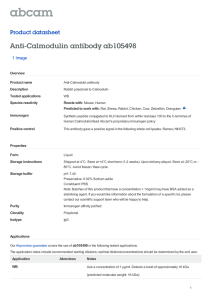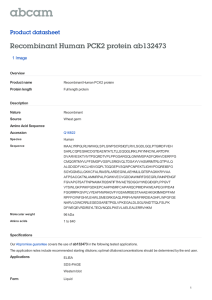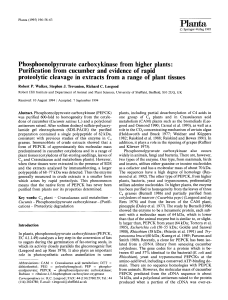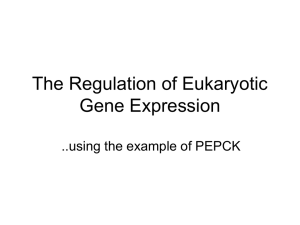Anti-PCK1 antibody ab61701 Product datasheet 1 References 1 Image
advertisement
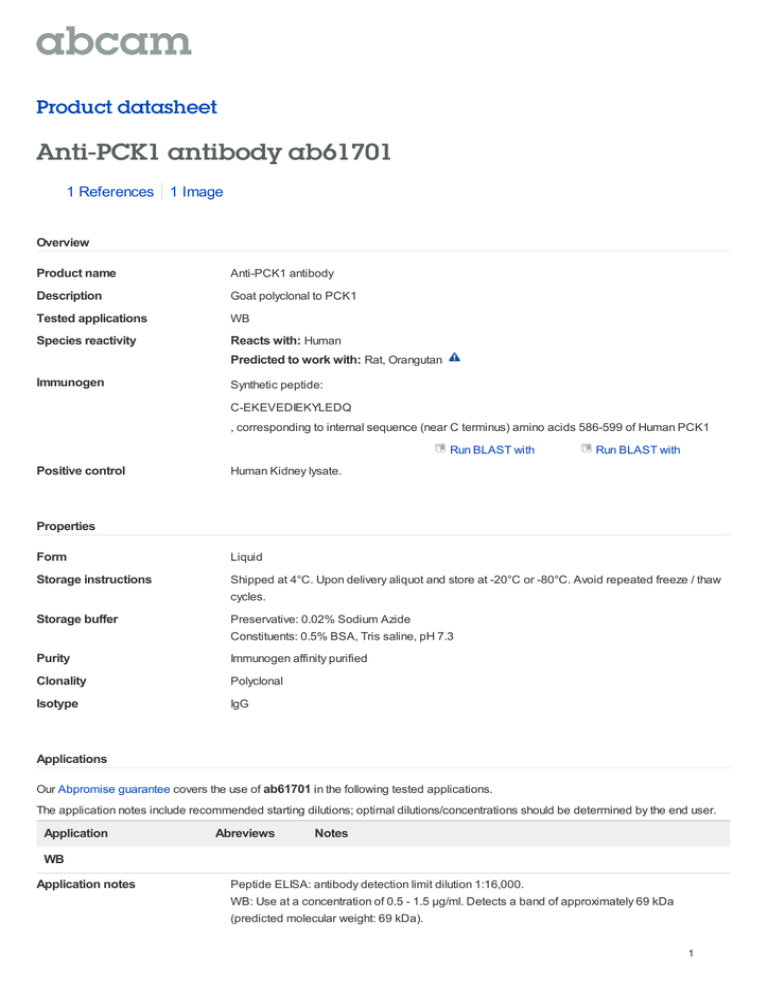
Product datasheet Anti-PCK1 antibody ab61701 1 References 1 Image Overview Product name Anti-PCK1 antibody Description Goat polyclonal to PCK1 Tested applications WB Species reactivity Reacts with: Human Predicted to work with: Rat, Orangutan Immunogen Synthetic peptide: C-EKEVEDIEKYLEDQ , corresponding to internal sequence (near C terminus) amino acids 586-599 of Human PCK1 Run BLAST with Positive control Run BLAST with Human Kidney lysate. Properties Form Liquid Storage instructions Shipped at 4°C. Upon delivery aliquot and store at -20°C or -80°C. Avoid repeated freeze / thaw cycles. Storage buffer Preservative: 0.02% Sodium Azide Constituents: 0.5% BSA, Tris saline, pH 7.3 Purity Immunogen affinity purified Clonality Polyclonal Isotype IgG Applications Our Abpromise guarantee covers the use of ab61701 in the following tested applications. The application notes include recommended starting dilutions; optimal dilutions/concentrations should be determined by the end user. Application Abreviews Notes WB Application notes Peptide ELISA: antibody detection limit dilution 1:16,000. WB: Use at a concentration of 0.5 - 1.5 µg/ml. Detects a band of approximately 69 kDa (predicted molecular weight: 69 kDa). 1 Not yet tested in other applications. Optimal dilutions/concentrations should be determined by the end user. Target Function Catalyzes the conversion of oxaloacetate (OAA) to phosphoenolpyruvate (PEP), the rate-limiting step in the metabolic pathway that produces glucose from lactate and other precursors derived from the citric acid cycle. Tissue specificity Major sites of expression are liver, kidney and adipocytes. Pathway Carbohydrate biosynthesis; gluconeogenesis. Involvement in disease Defects in PCK1 are the cause of cytosolic phosphoenolpyruvate carboxykinase deficiency (cytosolic PEPCK deficiency) [MIM:261680]. PEPCK deficiency is a metabolic disorder resulting from impaired gluconeogenesis. It is a rare disease with less than 10 cases reported in the literature. Clinical characteristics include hypotonia, hepatomegaly, failure to thrive, lactic acidosis and hypoglycemia. Autoposy reveals fatty infiltration of both the liver and kidneys. The disorder is transmitted as an autosomal recessive trait. Sequence similarities Belongs to the phosphoenolpyruvate carboxykinase [GTP] family. Post-translational modifications Acetylation is increased on addition of glucose and appears to regulate the protein stability. Cellular localization Cytoplasm. Anti-PCK1 antibody images Anti-PCK1 antibody (ab61701) at 0.5 µg/ml + Human Kidney lysate (35µg protein in RIPA buffer) Predicted band size : 69 kDa Observed band size : 69 kDa Western blot - PCK1 antibody (ab61701) Please note: All products are "FOR RESEARCH USE ONLY AND ARE NOT INTENDED FOR DIAGNOSTIC OR THERAPEUTIC USE" Our Abpromise to you: Quality guaranteed and expert technical support Replacement or refund for products not performing as stated on the datasheet Valid for 12 months from date of delivery Response to your inquiry within 24 hours We provide support in Chinese, English, French, German, Japanese and Spanish Extensive multi-media technical resources to help you We investigate all quality concerns to ensure our products perform to the highest standards If the product does not perform as described on this datasheet, we will offer a refund or replacement. For full details of the Abpromise, please visit http://www.abcam.com/abpromise or contact our technical team. 2 Terms and conditions Guarantee only valid for products bought direct from Abcam or one of our authorized distributors 3

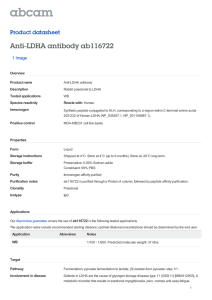
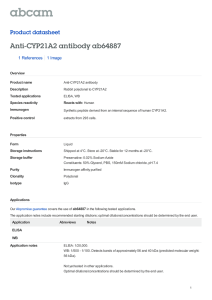
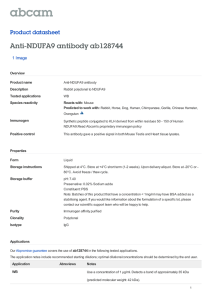
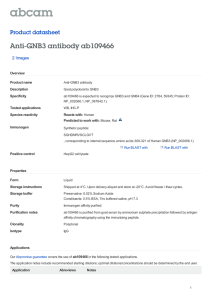
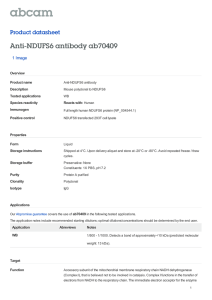
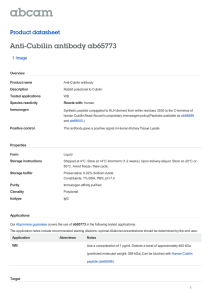
![Anti-CD147 antibody [CB43] ab23907 Product datasheet 1 References Overview](http://s2.studylib.net/store/data/011970305_1-0e97b90e3d2ef6c31f1c5e215ab5764d-300x300.png)
